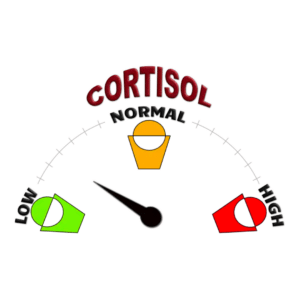Welcome to a journey into the intricate dance between gut health and hormones. As a nutritionist, understanding this connection can be a game-changer in guiding clients towards optimal well-being. Let’s delve into the impact of gut health on hormones and vice versa, focusing on key hormones like Oestrogen, Testosterone, Progesterone, Menopause, Thyroid Hormones, and Stress Hormones.
Oestrogen and Gut Harmony:
How does gut health affect oestrogen metabolism?
Oestrogen, crucial for women’s reproductive health, undergoes metabolism in the liver and interacts with the gut microbiota. Imbalances, caused by factors like processed foods or chronic stress, can disrupt oestrogen metabolism. A healthy gut, fueled by beneficial bacteria, aids in metabolising oestrogen properly. It’s a delicate balance, and a disrupted gut can contribute to hormonal imbalances, weight gain, and various health issues.
How does oestrogen impact gut health?
Oestrogen influences gut permeability, gut motility, and the composition of the gut microbiome. Maintaining this balance is essential. Too much oestrogen can lead to issues like hypermotility, while too little can result in constipation. A holistic approach, including a balanced diet, proper nutrients, and stress management, can support a healthy gut and hormonal equilibrium.
Testosterone Tale:
How does gut health impact testosterone in women?
The gut microbiome’s delicate balance can influence testosterone levels in women. Certain gut bacteria produce an enzyme, beta-glucuronidase, which reactivates testosterone. This process, coupled with inflammation and gut permeability, can elevate testosterone levels, potentially contributing to conditions like PCOS. Balancing gut health through lifestyle choices can be pivotal in maintaining optimal testosterone levels.
How does testosterone in women impact gut health?
While research on this interplay is ongoing, high testosterone levels have been linked to conditions like PCOS, which can, in turn, impact gut health. Interestingly, testosterone replacement therapy (TRT) has shown potential benefits in improving gut barrier function and reducing inflammation in postmenopausal women. More research is needed to fully understand this relationship.
Progesterone Puzzle:
How does progesterone impact gut health?
Progesterone, known for its reproductive roles, affects gut motility, gut microbiome composition, and intestinal permeability. Striking a balance is crucial, as high progesterone levels can lead to constipation and increased permeability, triggering inflammation.
How does gut health impact progesterone levels?
A harmonious gut microbiome is vital for optimal progesterone levels. Chronic inflammation, nutrient absorption issues, and imbalances in gut bacteria can disrupt hormonal balance, leading to decreased progesterone levels. A healthy gut, fostered through a balanced diet and stress management, can support optimal progesterone production.
Menopause and the Gut:
How does menopause impact gut health?
Menopause-induced hormonal changes, especially a decline in oestrogen, can influence the gut microbiome, potentially leading to imbalances and gut-related symptoms such as bloating and constipation.
How does gut health impact menopause?
The gut microbiome’s role in regulating oestrogen levels becomes critical during menopause. A balanced gut, fostered through dietary choices and lifestyle habits, may alleviate menopausal symptoms by maintaining hormonal balance and minimizing inflammation.
Thyroid Hormones Tango:
How do thyroid hormones affect gut health?
Thyroid hormones, pivotal for metabolism and gut motility, can impact digestion and nutrient absorption. Dysfunction can lead to issues like constipation or diarrhoea, inflammation, and gut dysbiosis.
How does gut health affect thyroid hormones?
A well-balanced gut microbiome is essential for proper iodine metabolism, critical for thyroid hormone production. Gut-brain axis disruptions and inflammation in the gut can contribute to thyroid dysfunction. A nourished gut, supported by a wholesome diet, aids in maintaining optimal thyroid function.
Stress Hormones and Gut Resilience:
How do stress hormones affect gut health?
Stress hormones like cortisol and adrenaline can wreak havoc on the gut, impacting the microbiome, gut motility, and permeability. Chronic stress may lead to digestive problems, creating a cycle of imbalance and discomfort.
How does gut health affect stress hormones?
A healthy gut microbiome can regulate stress hormone levels, reducing inflammation and promoting the production of mood-regulating neurotransmitters. The bidirectional relationship between gut health and stress underscores the importance of maintaining gut resilience for overall well-being.
Conclusion:
The intricate relationship between gut health and hormones is a dynamic journey where balance is key. As a nutritionist, empowering your clients with knowledge about these connections can pave the way for holistic well-being, encourage them to embrace a balanced diet, prioritise gut-friendly foods, and adopt stress- management techniques. Together, let’s unlock the power of a nourished gut for hormonal harmony and vibrant health.








